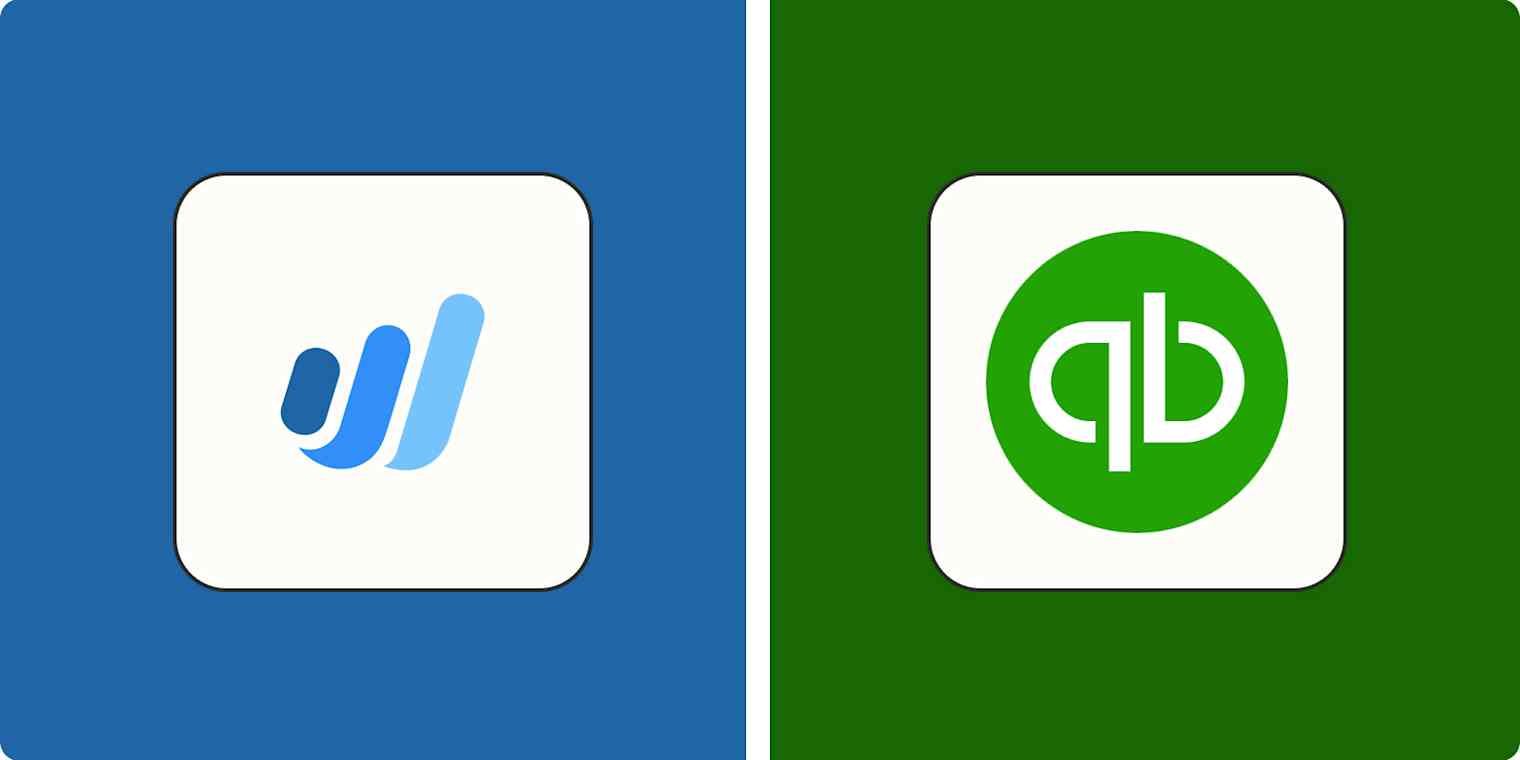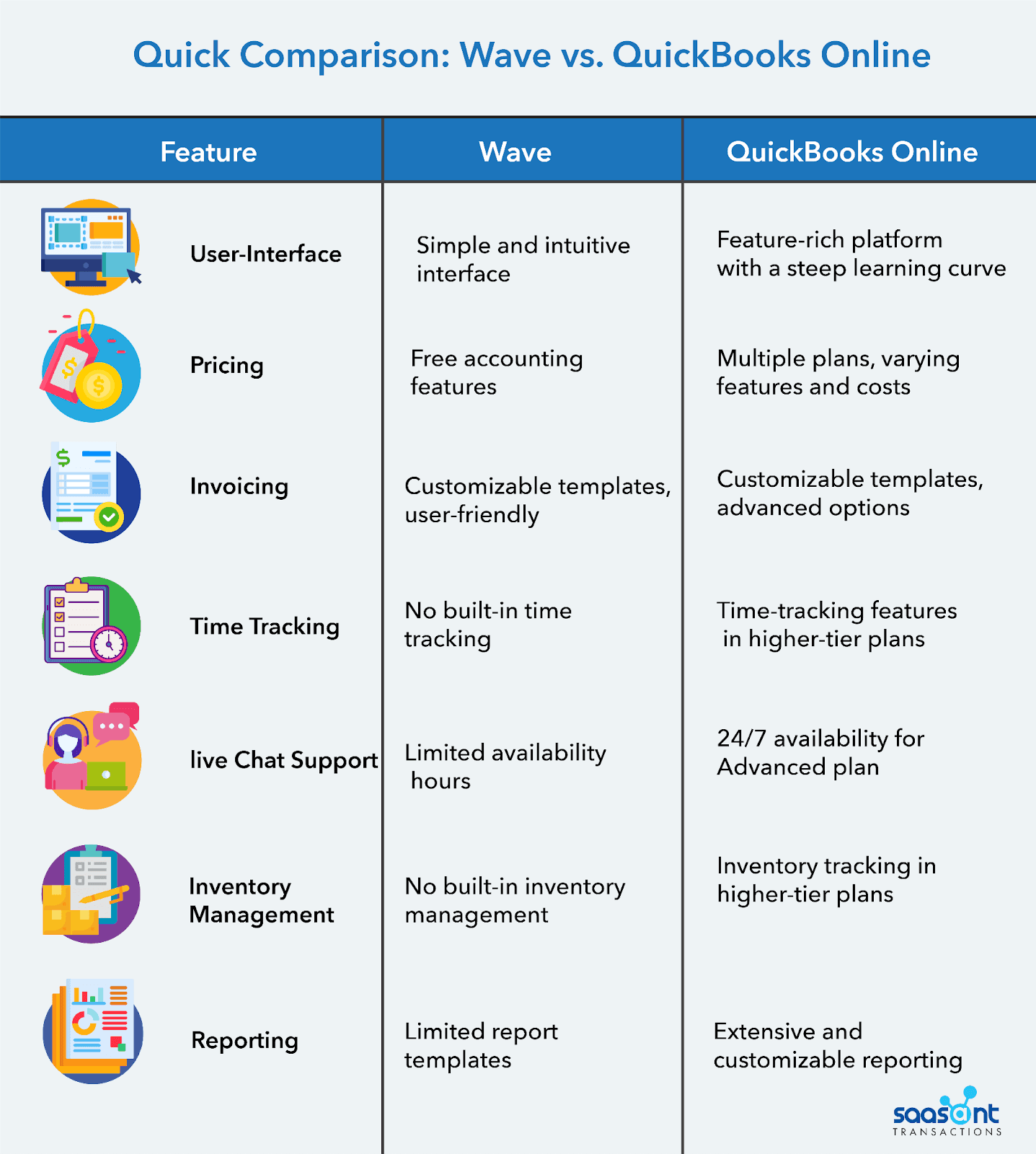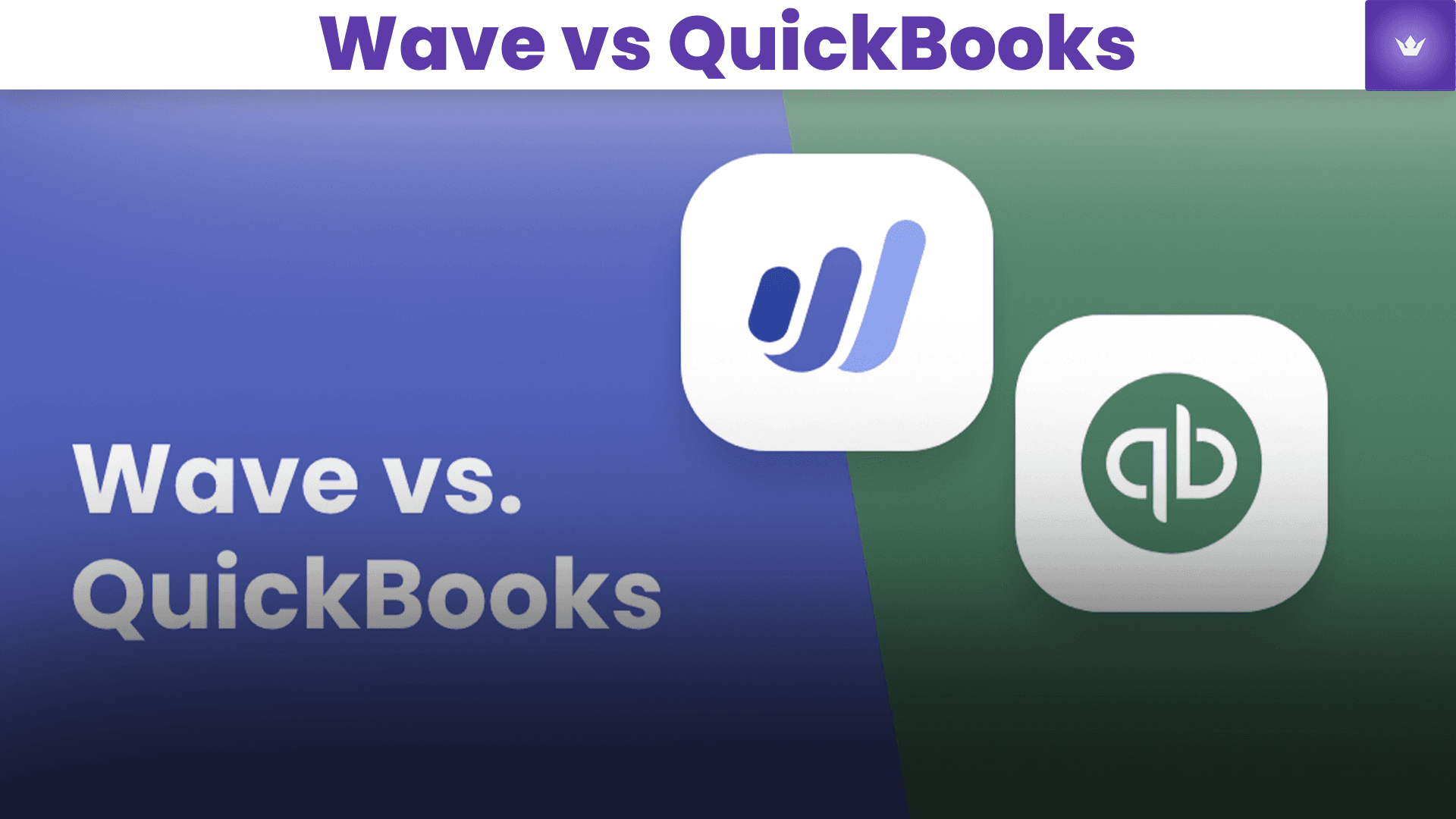Wave vs QuickBooks: Choosing the Best Accounting Software for Your Business in 2025
Table of Contents
- Overview of Wave and QuickBooks
- Detailed Feature Comparison: Wave vs QuickBooks
- Pricing Structures: Wave vs QuickBooks
- User Experience and Interface
- Integration Capabilities
- Customer Support and Resources
- Security and Data Protection
- Ideal Use Cases: Wave vs QuickBooks
- Making the Final Decision
Overview of Wave and QuickBooks
In the ever-evolving landscape of business finance management, choosing the right accounting software is crucial for success. As we move into 2025, two popular options continue to stand out: Wave and QuickBooks. This comprehensive comparison will help you navigate the features, benefits, and limitations of each platform to make an informed decision for your business.
Wave: The Free Accounting Solution
Wave has made a name for itself as a free, comprehensive accounting solution tailored for small businesses, freelancers, and entrepreneurs. Founded in 2010, Wave has consistently improved its offerings to provide a robust set of financial tools without any upfront costs.
Key Features of Wave
- Unlimited Invoicing: Create and send an unlimited number of professional invoices.
- Expense Tracking: Easily categorize and monitor your business expenses.
- Bank and Credit Card Connections: Automatically import transactions from your financial institutions.
- Financial Reporting: Generate basic financial reports to understand your business's health.
- Receipt Scanning: Capture and organize receipts using your mobile device.
QuickBooks: The Comprehensive Accounting Powerhouse
QuickBooks, developed by Intuit, has been a staple in the accounting software industry since the 1980s. It offers a wide range of features suitable for businesses of all sizes, from sole proprietorships to large corporations.
Key Features of QuickBooks
- Advanced Bookkeeping: Manage complex financial transactions with ease.
- Customizable Reporting: Create detailed, customized reports for in-depth financial analysis.
- Inventory Management: Track inventory levels, set reorder points, and manage vendors.
- Time Tracking: Monitor billable hours for employees and projects.
- Tax Preparation: Simplify tax season with built-in tax calculation and filing features.
For a quick overview of QuickBooks features, check out this video tutorial on YouTube.

Detailed Feature Comparison: Wave vs QuickBooks
Accounting and Bookkeeping
Both Wave and QuickBooks offer core accounting features, but they differ in depth and complexity.
Wave provides:
- Double-entry bookkeeping
- Chart of accounts
- Journal transactions
- Bank reconciliation
QuickBooks offers all of the above, plus:
- Class and location tracking
- Budget creation and tracking
- Fixed asset management
Invoicing and Payments
Wave's invoicing features include:
- Customizable invoice templates
- Recurring invoices
- Automatic payment reminders
- Online payment acceptance (for a fee)
QuickBooks provides more advanced invoicing options:
- Progress invoicing for long-term projects
- Time and expense tracking on invoices
- Multiple currency support
- Integrated payment processing with QuickBooks Payments
Reporting Capabilities
Wave offers basic reporting features:
- Profit & Loss statements
- Balance sheets
- Cash flow statements
- Sales tax reports
QuickBooks excels in reporting with:
- Over 80 built-in reports
- Custom report creation
- Industry-specific report templates
- Advanced filtering and customization options
Payroll Processing
Wave Payroll (available as an add-on):
- Basic payroll processing
- Direct deposit
- Tax form generation
QuickBooks Payroll (integrated or standalone):
- Full-service payroll
- Automatic tax calculations and filings
- Employee benefits management
- Time tracking integration
For a detailed look at QuickBooks Payroll features, visit the official QuickBooks Payroll page.
Pricing Structures: Wave vs QuickBooks
Understanding the cost implications of each software is crucial for making a budget-friendly decision.
Wave Pricing
Wave's core accounting, invoicing, and receipt scanning features are completely free. However, they charge for certain services:
- Payments: 2.9% + $0.30 per transaction for credit cards
- Payroll: Starting at $20/month + $6 per employee/contractor
QuickBooks Pricing
QuickBooks offers several pricing tiers to accommodate different business needs:
- Simple Start: $25/month
- Essentials: $50/month
- Plus: $80/month
- Advanced: $180/month
These prices are subject to change, and QuickBooks often runs promotional discounts for new users. Check the QuickBooks pricing page for the most current information.
User Experience and Interface
The ease of use and intuitiveness of the software can significantly impact your day-to-day operations.
Wave's User Interface
Wave prides itself on its user-friendly interface, designed with simplicity in mind. Key aspects include:
- Clean, modern dashboard
- Intuitive navigation
- Mobile-responsive design
- Quick access to core features
QuickBooks' User Experience
QuickBooks offers a more comprehensive interface with:
- Customizable dashboard
- Robust menu structure
- Keyboard shortcuts for power users
- Guided setup and tutorials
While QuickBooks may have a steeper learning curve, it offers more flexibility and customization for businesses with complex needs.

Integration Capabilities
The ability to connect your accounting software with other business tools can streamline your workflow and improve efficiency.
Wave Integrations
Wave offers limited but essential integrations:
- Paypal
- Etsy
- Shoeboxed (for receipt management)
- Google Sheets (via Zapier)
QuickBooks Integrations
QuickBooks boasts a vast ecosystem of integrations:
- Over 650+ third-party apps
- Direct integration with popular e-commerce platforms (Shopify, Amazon, etc.)
- CRM systems (Salesforce, HubSpot)
- Project management tools (Asana, Trello)
For a full list of QuickBooks integrations, visit the QuickBooks App Store.
Customer Support and Resources
Access to help and learning resources can be crucial, especially when you're getting started or encountering issues.
Wave Support
Wave offers:
- Email support
- Comprehensive help center
- Community forum
- Blog with tips and guides
QuickBooks Support
QuickBooks provides more extensive support options:
- 24/7 chat support
- Phone support (for higher-tier plans)
- Video tutorials and webinars
- Certified ProAdvisor network for personalized assistance
Both platforms offer robust online documentation, but QuickBooks generally provides more comprehensive and accessible support options.
Security and Data Protection
In 2025, data security remains a top priority for businesses of all sizes.
Wave Security Features
- 256-bit SSL encryption
- Regular security audits
- Data backups
- Read-only user permissions
QuickBooks Security Measures
- Multi-factor authentication
- Encrypted data transmission and storage
- Advanced user permission settings
- Automated data backups
Both Wave and QuickBooks comply with industry-standard security protocols, but QuickBooks offers more advanced security features, particularly beneficial for larger businesses or those handling sensitive financial data.
Ideal Use Cases: Wave vs QuickBooks
Understanding which software is best suited for different business types and sizes can help you make the right choice.
When to Choose Wave
Wave is ideal for:
- Freelancers and solopreneurs
- Small businesses with simple accounting needs
- Startups on a tight budget
- Businesses primarily focused on invoicing and basic expense tracking
For example, a freelance graphic designer who needs to send invoices and track expenses would find Wave more than sufficient for their needs.
When to Choose QuickBooks
QuickBooks is better suited for:
- Growing small to medium-sized businesses
- Companies with complex inventory needs
- Businesses requiring detailed financial reporting
- Organizations with multiple employees or contractors
A retail store with multiple locations, inventory to manage, and several employees would benefit more from QuickBooks' advanced features.

Making the Final Decision
Choosing between Wave and QuickBooks ultimately depends on your specific business needs, budget, and growth projections. Here are some final considerations to help you decide:
-
Assess Your Current Needs: List out the features you absolutely need right now. If basic invoicing and expense tracking cover most of your needs, Wave might be sufficient.
-
Consider Future Growth: Think about where your business will be in 1-3 years. If you anticipate rapid growth or increasing complexity in your finances, QuickBooks might be a better long-term solution.
-
Evaluate Your Budget: If cost is a major concern and you're comfortable with basic features, Wave's free offering is hard to beat. However, if you can afford it, QuickBooks' advanced capabilities might provide better value in the long run.
-
Try Before You Commit: Both Wave and QuickBooks offer free trials. Take advantage of these to get hands-on experience with each platform before making your final decision.
-
Consult with a Professional: If you're still unsure, consider talking to an accountant or financial advisor who can provide personalized recommendations based on your business structure and financial goals.
Remember, the right accounting software can save you time, reduce errors, and provide valuable insights into your business finances. Whether you choose Wave for its simplicity and cost-effectiveness or QuickBooks for its comprehensive features and scalability, ensuring your financial management aligns with your business objectives is key to success in 2025 and beyond.
By carefully weighing the pros and cons of Wave vs QuickBooks, you'll be well-equipped to make an informed decision that supports your business's financial health and growth potential.


